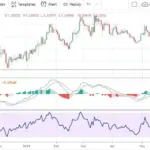As financial technology (fintech) continues to disrupt traditional banking, regulators worldwide are tightening their focus on anti-money laundering (AML) compliance. While fintech brings innovation, accessibility, and speed to the financial ecosystem, it also introduces new risks that criminals can exploit to move illicit funds. The future of fintech, therefore, is deeply intertwined with the evolution of AML laws — a dynamic balance between innovation and regulation.
The Rise of AML in the Fintech Era
Traditionally, AML frameworks were designed for banks and established financial institutions. However, with the explosion of digital payments, cryptocurrencies, peer-to-peer lending, and neobanks, regulators have recognized that fintech companies play an equally critical role in preventing financial crime.
Global watchdogs like the Financial Action Task Force (FATF) and regional regulators such as the European Union (EU) and the U.S. Financial Crimes Enforcement Network (FinCEN) have expanded AML guidelines to include fintech platforms. These rules mandate processes such as Know Your Customer (KYC), transaction monitoring, and suspicious activity reporting to detect and deter money laundering activities.
Challenges Fintechs Face in AML Compliance
While the intent of AML laws is clear, compliance can be particularly challenging for fintech companies.
- Resource Constraints – Startups often lack the manpower or budget to implement full-scale compliance teams and advanced monitoring systems.
- Regulatory Complexity – AML laws differ across jurisdictions, making it difficult for fintechs operating globally to stay compliant in every market.
- Data Management – Handling massive volumes of user data securely while ensuring privacy can be a significant hurdle.
- Evolving Threats – Criminals are leveraging new technologies like decentralized finance (DeFi) and privacy coins to obscure transactions, forcing fintechs to continuously adapt.
The Role of Technology in Modern AML Efforts
Ironically, the same technology that enables money laundering can also be a powerful tool against it. Fintech firms are increasingly leveraging artificial intelligence (AI), machine learning (ML), and blockchain analytics to enhance their AML capabilities.
- AI-driven monitoring systems can analyze vast transaction data in real-time to flag unusual patterns.
- Blockchain forensics helps track the movement of funds across digital wallets, improving transparency.
- Digital identity solutions streamline KYC processes, reducing human error and onboarding friction.
These innovations not only make AML compliance more efficient but also position fintechs as proactive defenders against financial crime.
Global Trends Shaping the Future
Several emerging trends are redefining how AML laws will influence fintech’s evolution:
- RegTech Integration – Regulatory Technology (RegTech) startups are offering plug-and-play compliance solutions that help fintechs automate AML checks.
- Cross-Border Collaboration – Regulators are increasingly sharing intelligence to combat money laundering that spans multiple jurisdictions.
- Crypto Regulations – As digital assets gain mainstream traction, governments are crafting specific AML laws targeting exchanges, stablecoins, and DeFi platforms.
- Data Privacy Balance – Striking harmony between AML compliance and privacy regulations like the EU’s GDPR will remain a key challenge.
What the Future Holds
The future of fintech lies in compliance by design — embedding AML safeguards directly into the architecture of financial platforms. Rather than viewing regulation as a burden, leading fintech firms are embracing it as a competitive advantage, signaling trust and credibility to users and investors alike.
As regulators modernize their frameworks to keep pace with technology, fintechs that adapt early and invest in strong AML infrastructures will be better positioned for sustainable growth.
Conclusion
Anti-money laundering laws are not just about compliance — they are about trust, security, and the integrity of the global financial system. As fintech continues to innovate, collaboration between regulators, technology providers, and financial institutions will shape a safer, more transparent digital economy. The fintechs that can navigate this evolving regulatory landscape will lead the industry into its next phase of responsible innovation.















